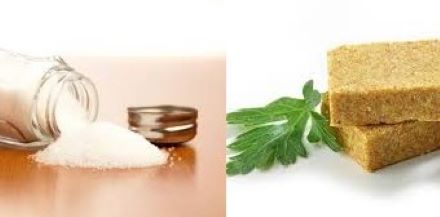The Technical Advisor, Network for Health Equity and Development (NHED), Dr. Jerome Mafeni, says the excessive consumption of salt and bouillon cubes known as maggi cubes poses dangers to public health.
Mafeni said this on Thursday at a news conference themed, “Bouillon Fortification: Public Health Versus Profit” in Abuja.
The News Agency of Nigeria (NAN) reports that the event was hosted by the Corporate Accountability and Public Participation Africa (CAPPA) in collaboration with NHED and Salt Reduction Coalition.
The medical expert added that the theme highlighted the tension between public health and commercial interests, and the steps which must be taken to prioritise the well-being of Nigerians.
He said, “Nigeria is currently facing a dual burden of malnutrition and a rising prevalence of non-communicable diseases (NCDs) such as hypertension and cardiovascular diseases.
“A significant contributor to this health crisis is the excessive consumption of sodium, primarily through processed and packaged foods, including widely used seasonings like bouillon cubes and monosodium glutamate (MSG).
“Bouillon cubes, a staple in many Nigerian households, are heavily marketed as essential for enhancing flavour and adding nutritional value to meals.
“However, these products are alarmingly high in sodium. While food fortification is intended to address micronutrient deficiencies, using high-sodium foods as vehicles for fortification is counterproductive and poses significant health risks.
“The World Health Organisation (WHO) recommends a daily sodium intake of less than 2grams (equivalent to 5grams of salt) for adults, yet many Nigerians consume far more than this due to the high sodium content in these commonly used products.’’
Mafeni said that the marketing practices surrounding these products often misled consumers into believing they were making healthier choices.
“Monosodium glutamate, for example, is frequently advertised as a safer alternative to table salt, despite its high sodium content. This has resulted in widespread misinformation, further exacerbating the public health crisis.
“So, the need for immediate action to reduce sodium intake among Nigerians is clear.
“High sodium consumption is directly linked to the increasing rates of hypertension and cardiovascular diseases in the country, conditions that are placing a growing burden on Nigeria’s healthcare system.
“Without intervention, these trends will continue to worsen, leading to higher mortality rates, reduced quality of life, and increased healthcare costs,’’ medical expert said.
According to him, implementing Front-of-Pack labels (FOPL) is a proven strategy to help consumers make healthier food choices.
“FOPL provides clear, easily understandable information about the nutritional content of packaged foods, particularly in relation to sodium, sugar, and saturated fats.
“By enabling consumers to make informed decisions, FOPL can play a critical role in reducing sodium intake at the population level.’’
He urged the Federal Government to enforce global best practices in the development and implementation of nutrient profile models for packaged foods.
This, he added, would ensure that products available in the Nigerian market met established health standards.
“This will not only protect consumers but also promote the production and availability of healthier food options.
“Today, we urge the Federal Ministry of Health and Social Welfare, the National Agency for Food and Drugs Administration and Control (NAFDAC), and other relevant agencies to accelerate preliminary activities for salt and sodium regulation in Nigeria.
“The time for action is now. We must prioritise public health over profit and ensure that the food products available in our markets do not pose unnecessary risks to the health of our citizens.
“We call on all stakeholders, including the government, civil society organisations, and the private sector, to join us in this campaign. Together, we can drive the change needed to protect the health of Nigerians and create a healthier future for our nation.’’
In his remarks, the Executive Director of CAPPA, Mr Akinbode Oluwafemi, said that the recent food insecurity and economic crisis had led to a significant rise in the living expenses of Nigerians.
Oluwafemi added that the masses could no longer afford basic food items such as garri, giving industries the edge to produce cheaper and ready-to-use ultra-processed alternatives with low nutritional and health benefits.
“In such situations where nutritious food is costly, people only feed to satisfy hunger,’’ CAPPA boss said. (NAN)


